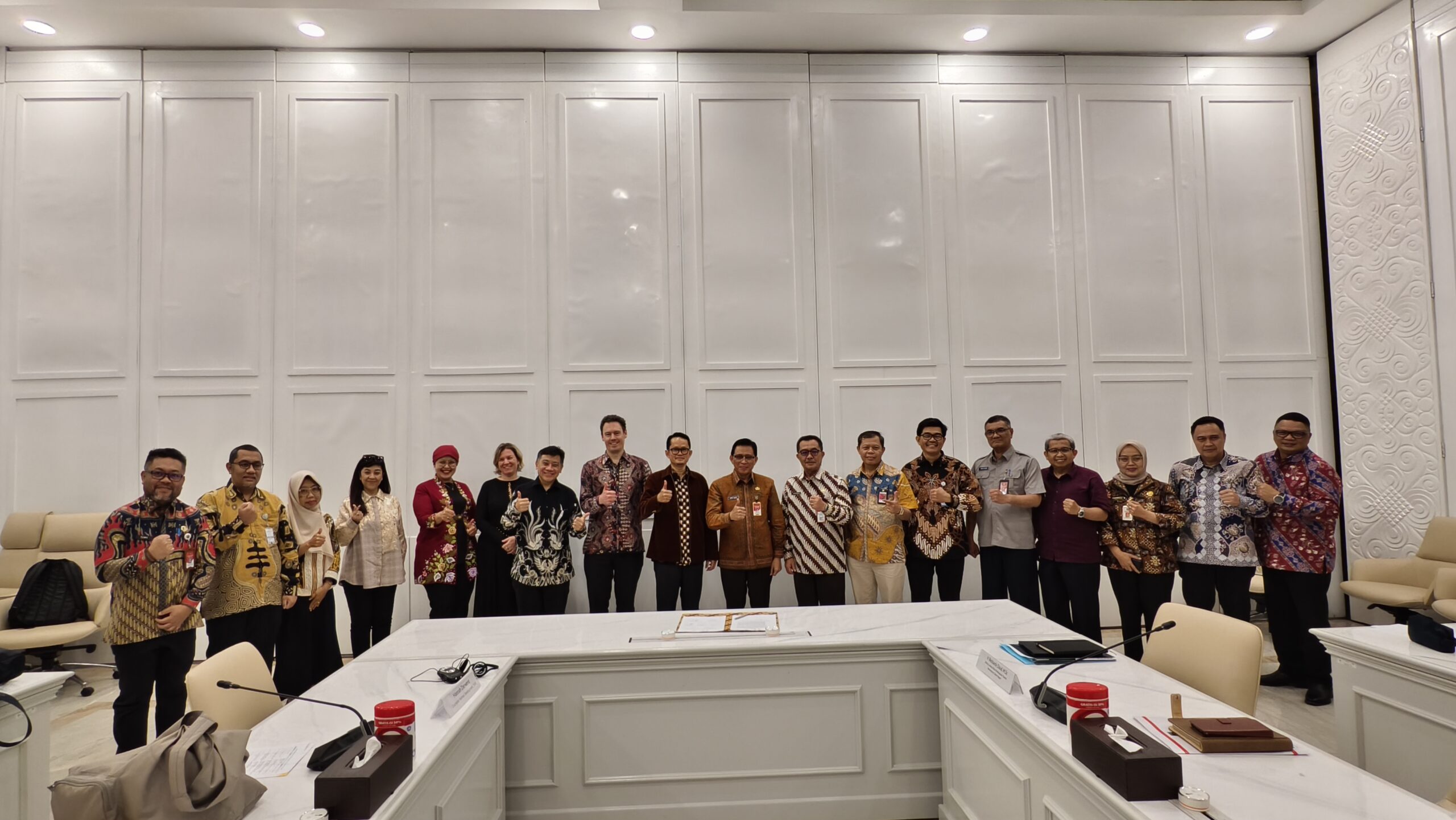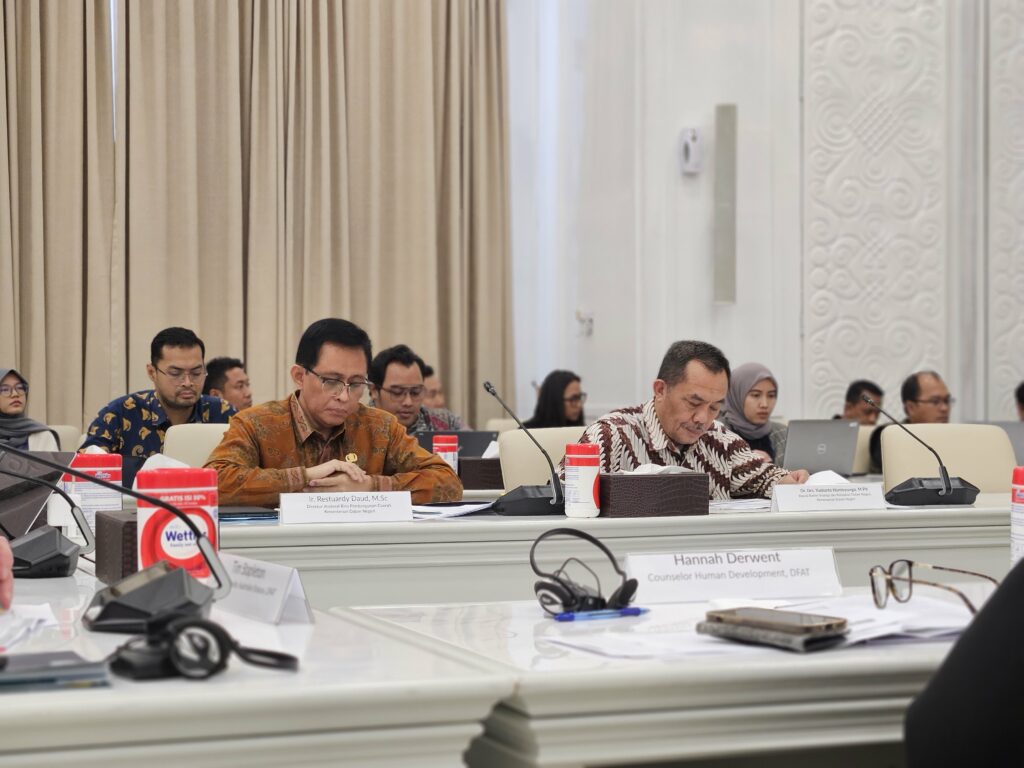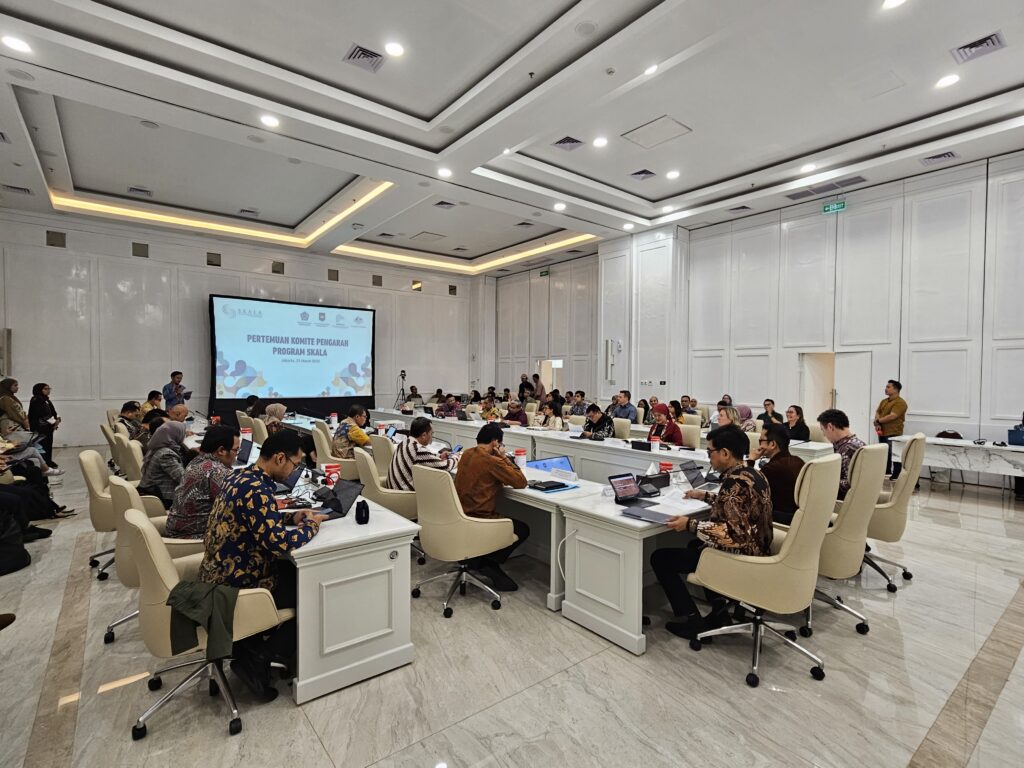SKALA Steering Committee Meeting: Scaling Up Good Practices and Aligning with New Development Priorities

The Governments of Indonesia and Australia, through the SKALA Program, continue to strengthen their partnership to improve governance, particularly in ensuring inclusive and effective basic service delivery. At the SKALA Steering Committee Meeting, held at the Ministry of National Development Planning (Bappenas) on 21 March 2025, both parties outlined shared priorities, and future directions to align with national development goals and local government needs. The Steering Committee mandated that SKALA should continue and accelerate implementation of the approved Annual Work Plan 2024-2025.
SKALA is a long-term partnership program that supports the strengthening of subnational governance systems in Indonesia. It focuses on four key areas: public financial management, the fulfilment of Minimum Service Standards (SPM), data use and analysis, and the mainstreaming of gender equality, disability, and social inclusion (GEDSI). The program will run across two phases – Phase I (2023–2026) and Phase II (2027–2030) – with the Ministry of National Development Planning/Bappenas, the Ministry of Home Affairs, and the Ministry of Finance as its primary government partners.
Strengthening Policy Direction and Scaling Up Good Practices
The Steering Committee Meeting was held in light of the Presidential Regulation No. 12 of 2025 on the National Medium-Term Development Plan (RPJMN) 2025–2029. Deputy Minister for Community Empowerment, Population and Manpower at Bappenas and SKALA Steering Committee Vice Chair, Maliki, emphasised the importance of aligning the SKALA Program with national priorities.
“The national development agenda focuses on inclusive and high economic growth, poverty reduction, and improved human resources. SKALA contributes to all three, particularly by strengthening basic services and involving vulnerable groups in planning and budgeting,” said the Deputy Minister.
Since July 2023, SKALA has contributed to results in four key areas:
- GEDSI: Increased participation of vulnerable groups, including people with disabilities, in local development planning, and support for more inclusive local policies.
- Data: Improved data quality for decision-making, including corrections to over 1.7 million social assistance records in East Nusa Tenggara.
- Basic Services: Ongoing support for implementing and reporting on Minimum Service Standards (SPM), including elderly-focused social policies.
- Public Financial Management: Support for harmonising planning and budgeting, along with regional tax reform.
These good practices need to be scaled up, especially in the context of Presidential Instruction No. 1 of 2025 on Budget Efficiency.
“With local innovations, we can boost efficiency without lowering service quality, and even improve accessibility,” the Deputy Minister added.
Collaborative and Responsive Partnership to Drive Impact
Minister-Counsellor Governance and Human Development at the Australian Embassy Jakarta, Tim Stapleton, highlighted SKALA’s flexible and collaborative approach as key strengths. He noted that SKALA’s work plans are guided by priorities from lead ministries and local government partners.
“SKALA’s strength lies in its focused approach and its ability to foster collaboration between ministries and local governments, helping ensure that reforms and policies are mainstreamed across all levels of government. It is a flexible and responsive program that supports Indonesia in reducing poverty and regional disparities. This flexibility is reflected in annual work plans that are aligned with the priorities of the Government of Indonesia,” said the Minister-Counsellor.
The Steering Committee encouraged SKALA to continue adapting to policy changes and to accelerate the institutionalisation of proven good practices. The next work plan (July 2025–December 2026) will continue to reflect priorities from ministries and local governments, while also strengthening systems for monitoring, evaluation, and coordination.
In closing, the Minister-Counsellor acknowledged Australia and Indonesia’s shared commitment.
“Strong collaboration is key to improving governance and delivering inclusive public services. Australia remains committed to working with the Government of Indonesia to ensure SKALA delivers meaningful results, particularly in governance, service delivery, and advancing GEDSI,” he said.
SKALA contributes to two key transformation agendas for Indonesia Emas 2045: Social and Governance. During the current phase of strengthening the foundations for transformation (RPJMN 2025-2029), SKALA focuses on fundamental aspects of national and subnational systems and processes. This approach aims to create the conditions necessary for innovations to be replicated and institutionalized. With clear direction and strong cross-sector collaboration, SKALA is well-positioned to continue strengthening governance systems in Indonesia.








